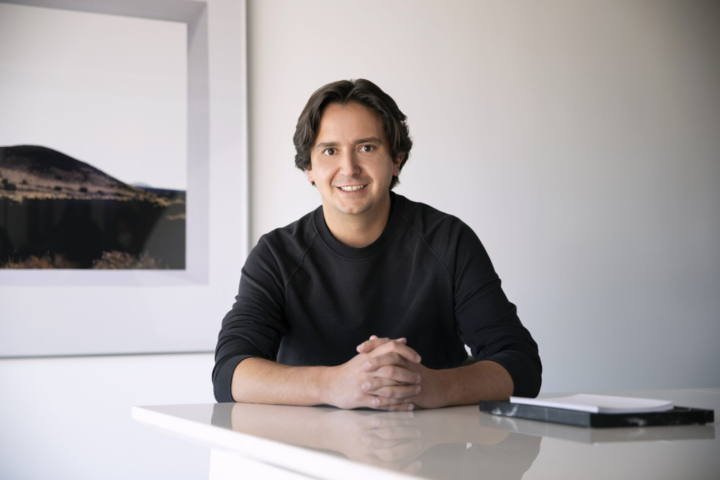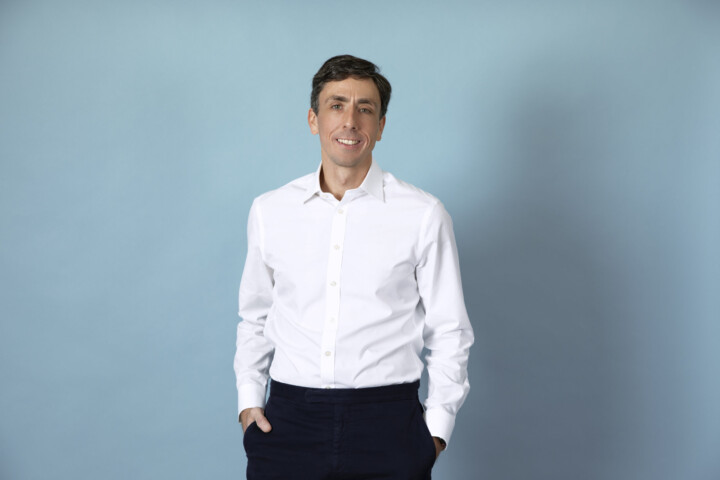From Habi they say that the search for an eventual IPO must have a clear meaning, which in their case means first applying the transparency standards of leading companies
Via Bloomberg

Bogotá — In an interview with Bloomberg Línea, the founder of the Colombian unicorn Habi, Sebastián Noguera, and his CFO, Marcos Kantt, said that one of the priorities for the company in 2023 is to guarantee the profitability of the proptech and highlighted that the Company will investmore than US$250MM on home purchases in the coming months.
“Since before the headwinds started, and today, we aim to be a company that operates profitably,” Sebastián Noguera, founder of Habi said in the interview, which at the beginning of 2022 became the second Colombian unicorn, after Rappi.
For Habi, one of the great successes of 2022 was that from the beginning it sought to prioritize “sustainable and responsible growth”, as highlighted by the company’s CFO, Marcos Kantt.
During 2022 the company focused on consolidating its operations in the main cities of Colombia and Mexico where it has a presence.
Since its foundation, the company has accompanied more than 27,000 families in their home buying and selling processes through its different subsidiaries, with a direct investment of US$70 million in Colombia alone, this past year.
“We obviously had plans to grow 20 times again in 2022, as we did in 2021, when we grew 25 times, but we made conscious decision to reduce that growth, and instead focus on refining the processes, work hard on improving even more our profitability at the unit level while putting aside that growth a bit”, said the CFO of Habi.
The important thing, according to Marcos Kantt, was that they realized “very quickly that it was not necessary” to continue with this rate of growth (25x), but that it was a priority “to ensure the company’s profitability by improving internal processes, efficiencies, constant work in the monitoring of expenses, the prioritization of the different services or products and initiatives”.
“And all this led to a capital round at a very interesting valuation where we raised US$200MM at a time in the world when almost nothing was happening (…) the goal is not to survive but to create the largest and sustainable proptech company in the region”, he pointed out.
Habi says that it is profitable from the perspective of unit economics from day 1, that is, the business is strong enough that it supports a positive return on each transaction they make, according to the executives.
“And at the company level we have proposed that 2023 be a positive year at the EBITDA level. This from a managerial point. In Colombia, since July of 2022 we have been positive” said Marcos Kantt.
Among its different initiatives for 2023, is to reinforce its presence with fintech solutions that complement its current offer.
“We are adding several fintech services to our proptech platform. We started with a bank mortgage, other products will follow, such as Múdate en 10 Días (a solution that reduces home purchase times with mortgage credit and solves the procedures that took up to six months) and in 2023 we will come up with other services to continue supporting the residential segment”, explained the CFO of Habi.

Sebastián Noguera, presidente de Habi
Path to best practices and global standards
After reaching a valuation of more than US$1 billion and entering the unicorn club this year, Habi is thinking about an initial public offering and believes that sometime in 2024 he could launch it, although before that he is paving the way to achieve it.
Marcos Kantt says that many companies in the sector “dream or think that this milestone could come to pass”, and although it is not an immediate priority, from Habi they do envision that possibility seriously.
For now, they are focused on how to operate in the most transparent way, with the necessary internal controls and with auditors who check that things are being done correctly.
“This is a process that has been accentuated in the last six months. We have EY auditing financial statements, we are closing an important line of credit that we are going to be announcing now in a short time with a multilateral bank that is going to be auditing us from the point of view of ESG, with which everything that is a company We are already doing it publicly. We are not there yet, we are working to be in the next quarters”, he stated.
Kantt states that they are definitely open to that possibility, but there is no definite date: “The answer is: ‘Someday yes.’ If that day does not arrive early, Habi is prepared or wants to prepare to operate as if we were public, and if there is that window, take advantage of it at the time, but it is not something we see as a final objective”.

CFO de Habi, Marcos Kantt.
From Habi they say that the search for an eventual IPO must have a clear meaning, which in their case means first applying the transparency standards of the leading companies in the market.
At the same time, once they reach the scale they are looking for, they would leverage an IPO to use it as a vehicle to bring more liquidity from large global investors and inject it into the market to make it more efficient, according to Sebastián Noguera.
“Obviously, an IPO can be a very nice moment to be able to bring more liquidity and be able to do it, but what we know is that we will have to do it when we are ready and at the right time for the company. It is not an end, it is a means to continue fulfilling our mission,” he added.
Questioned about the degree of preparation they have today for a possible IPO, from Habi they say that they are in the middle ground, since there is much to do. “Everything related to controls, internal audits and others, I think we are quite advanced,” said Marcos Kantt.
His vision on crypto
Despite the fact that companies in the proptech sector have adopted cryptocurrencies as a means of payment for the purchase of housing, since Habi they do not plan to insert them amid the recent events that have impacted that market.
Habi’s CFO stated that from a business point of view and the purpose of generating liquidity for consumers, they do not see crypto as “a fundamental issue that helps in that regard.”
“There is a long way to go as to what the real utility of crypto is going to be going forward. Many of the reasons why crypto was pushed in the last ten years have clearly not paid off in the last twelve months: maintaining value, generating trust and other types of reasons. The truth is that we have not seen them materialize in times of stress such as those we’re seeing lately,” he added.
Even so, they consider that several of the technology that allows the flow of crypto could be used, specifically the blockchain, so “yes or yes they are working on how to apply that to procedures, processes and others”, but the focus is not is to generate liquidity from those channels.
In this sense, Noguera concludes that the focus should be rather on how to facilitate access to liquidity and credit given the significant penetration of cash payments in segments such as the sale of used housing.